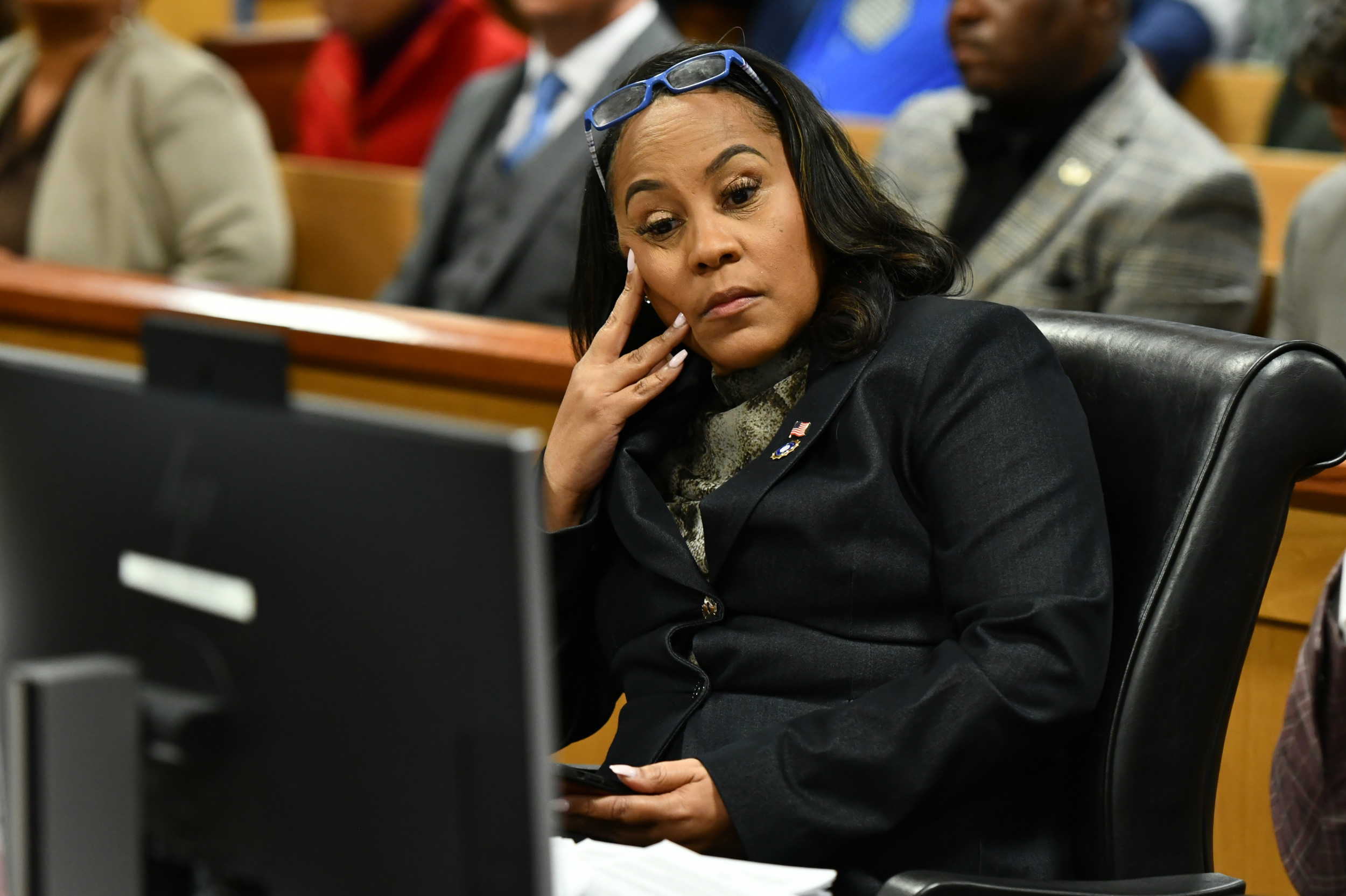Joe Biden's approval ratings are sliding as the president heads into the final weeks in office.
Biden's average rating hit a six-month high on September 3 at 42.3 percent but trended downward from September 30, poll tracker site 538 shows. The slide as Biden enters the last days of his presidency raises the prospect he could leave the White House with the lowest approval rate since records began in the 1930s.
It fell 3.6 points in less than six weeks, with 38.7 percent of Americans satisfied with the job he is doing as of Friday, November 8. Biden's current rating is only slightly above his record average low of 36.9 percent on July 4, just days after his poor CNN debate performance against Donald Trump, which prompted calls for the president to end his reelection bid.
"I don't think anything has really changed on the ground in terms of presidential performance that would produce even lower approval ratings," Grant Reeher, a professor of political science at Syracuse University's Maxwell School of Citizenship and Public Affairs, told Newsweek.
"But Democrats and the president are getting a lot of scrutiny and negative media coverage, and this is bound to have an effect. Also, Biden did not perform very well as an advocate for Kamala Harris."
Newsweek has contacted the White House for comment via email.

Biden has faced historically low approval ratings at times during his time in office. In May, 538 said he was the least popular president of the past 75 years among those who had served at least 1,202 days in office. These scores, alongside the 81-year-old's age, were cited as reasons why Biden should not seek a second term in office.
Biden has been blamed by Democratic figures such as former House Speaker Nancy Pelosi for hindering Vice President Harris' chances of election victory of Donald Trump by attempting to run for office again for so long. By the time Biden ended his 2024 bid, Harris had just over 100 days to campaign before Election Day.
"As far as his legacy, I don't think a further slipping in approval ratings will make a big difference in how he or his presidency are viewed. Stepping down from being the nominee at the 11th hour, and the events that led to that, will be much more important in that side of the assessment," Reeher said.
"On the other hand, there are some significant domestic accomplishments to counter those political and electoral shortcomings, and historians will be weighing the policy story of the Biden presidency against the political story. It's a tale of two presidencies.
"But again, the way and the why of Biden stepping down, and the election outcome, seal that fate more than those numbers," Reeher said. It must be noted that since Election Day, there has been a 0.2-point uptick in Biden's average approval rating, going from 38.5 percent on November 5 to 38.7 on Friday.
The country has also faced decades-high levels of inflation during Biden's time in office, which has been cited as a key reason voters backed Trump over Harris in the 2024 election.
Reeher added that Biden's unpopularity is similar to that of Republican President George W. Bush's in the final stages of his second term in office.
Bush's approval ratings were as high as 90 percent in Gallup polling in the wake of the 9/11 terror attacks in 2001. By late 2008, they hit a low of 25 percent before the election. It would rise to 34 percent in the week before Barack Obama's inauguration.
Trump also saw a decline in approval ratings in his final days as president, largely due to the January 6 attack at the Capitol in 2021.
On January 4, 2021, Trump's average approval score was 42.6 percent. He ended up leaving the White House with a 38.6 percent approval rating, and 57.9 disapproval.
Biden had recorded approval ratings around the mid-50s for the majority of his first year in office.
However, he faced heavy criticism for the U.S. withdrawal from Afghanistan in August 2021, when more than 180 people, including 13 U.S. service personnel, were killed in a suicide bombing at Kabul airport just prior to the Taliban retaking the country.
Following the withdrawal, Biden's approval rating fell below 50 percent would never go above that mark again.
A post-election The Economist/YouGov poll of 1,590 registered voters showed that 41 percent approve of the way Biden is handling his job as president, while 57 percent disapprove.
Jamal Simmons, the former communications director for Harris, suggested that the president should step down and allow the vice president to lead the country until Trump returns to office on January 20.
Simmons told CNN's State of the Union on Sunday that Biden has been a "phenomenal" president but should use what's left of his time in office to fulfill his promise to be a "transitional figure."
"He could resign the presidency in the next 30 days, make Kamala Harris president of the United States," Simmons said.
In a follow-up post on X, formerly Twitter, Simmons said: "It'd turn the tables on Trump, keep Kamala from presiding over Jan. 6, and make it easier for [the] next woman to run.
"Dems have better policies, but we must realize that the old rules no longer apply. We are not playing table tennis; we are in a mixed martial arts fight, and Americans respond to drama and excitement," Simmons added. "We should use that to make our arguments for a better path forward."
Political commentator Ed Krassenstein said it was a "stupid idea" for Biden to resign now in order to briefly give Harris the presidency.
"Let the first woman president prove that she can win it herself, without a man giving it to her," Krassenstein posted to his one million X followers.
"We will have a female president. It's just a matter of time. Don't ruin the moment by doing it this way. This isn't how it should happen."
Harris has also seen declining approval ratings in recent weeks.
The vice president had an average net disapproval score of 1.4 points on September 29 (46.9 percent disapprove to 45.5 percent approve). On the eve of her election defeat, Harris' net disapproval score had risen to 4.9 points (49.2 percent disapprove to 44.3 percent approve)





.png)














 English (US) ·
English (US) ·